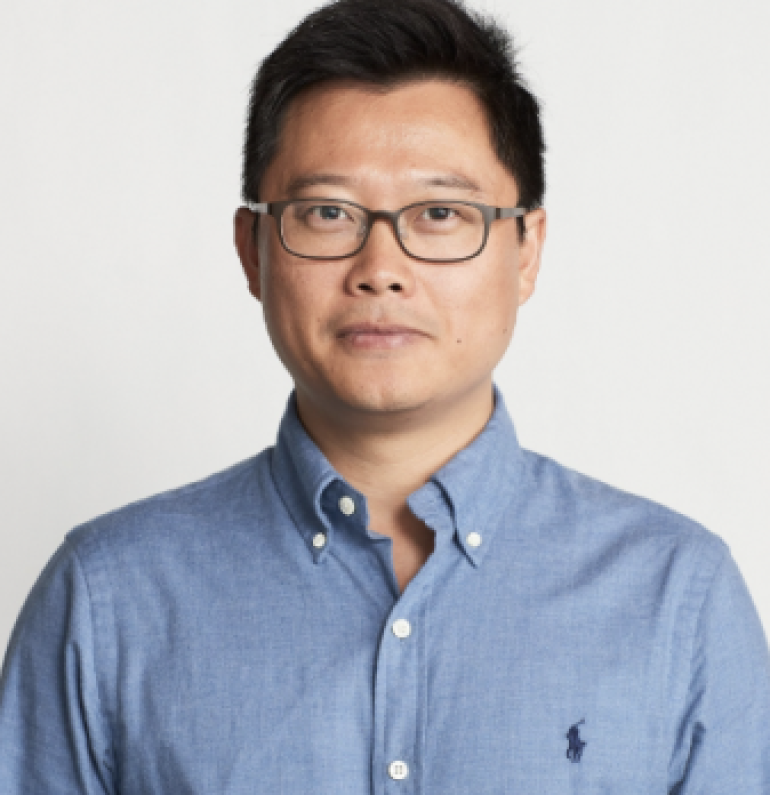Associate Professor Weihuan Zhou joined UNSW Law & Justice in 2015 and currently serves as the Director of Research and Co-Director of the China International Business and Economic Law (CIBEL) Centre. We asked Weihuan about his research and achievements throughout his time with us.
Can you give us a quick overview of your research?
My research focuses on international trade law including the laws of the World Trade Organization (WTO), free trade agreements (FTAs), dispute resolution, the linkage between trade and non-trade issues such as sustainability, and the nexus between international trade regulation and China.
What or who sparked your interest in pursuing this field of research?
International trade is a key component of global economic activities. To ensure trade plays a positive role in driving economic growth, cooperation among governments to establish an effective rules-based system is essential. I have worked on issues relating to international trade regulation/cooperation for over a decade, including practicing trade law and advising government, industry and commercial clients on related matters before becoming an academic. My interest is driven by the significance of this area of law to academic research, legal practice, commercial activities, and policymaking at both domestic and international levels.
How would you explain and introduce your research to someone with no legal background in the area (say, at a social event)?
Faced with the current trend of re-globalisation, particularly in the context of geo-political confrontations and rising unilateral actions, how to ensure the global trading system is well-equipped for addressing uncertainties and disruptions as well as other contemporary challenges in the pursuit of the shared goals of sustainability, inclusiveness and digital transformation matters to all stakeholders and their activities.
What project are you working on that excites you?
My ongoing projects seek to enhance the understanding of policies and strategies of governments in major trading nations on the green and digital transitions and to lead the debate about how the global trading system can provide a positive role in promoting cooperative actions, minimizing confrontations and mutually destructive actions, and resolving disputes peacefully and effectively.
For example, one of these projects explores the development of industrial policy for critical minerals in the green transition. It will offer a detailed analysis of this industrial policy race and its implications and potential challenges. More broadly, it will develop an analytical framework for future studies of green industrial policies.
What do you hope to achieve with your research/impact & engagement in the next few years?
Through my current and future research projects, I aim to make original and quality contributions to academic and policy debate over cutting-edge challenges facing the global trading system and international trade policymaking, and help stakeholders to build knowledge about the legal, commercial and policy implications and to make informed decisions.
What research/impact & engagement achievement are you most proud of and why?
My recent research on industrial subsidies and state-owned enterprises has enhanced understanding of China’s state capitalism and industrial policies. More importantly, it challenges the conventional wisdom about the adequacy of world trade rules in dealing with China’s state capitalism and is increasingly reshaping academic and policy debate on these issues including reforms of the world trading system and approaches to deal or engage with China. For a thorough analysis of these issues, see my recent book (co-authored with Prof Henry Gao) titled Between Market Economy and State Capitalism China's State-Owned Enterprises and the World Trading System. The significance and global impact of this book is evidenced partly by the organisation of a range of book events by some of the world’s most prestigious institutions such as Georgetown University, Harvard University, the World Trade Institute, the Geneva Graduate Institute.
Do you have a regular research practice that you can share?
I align research practice with intended goals and outcomes and have employed different methods (including doctrinal, comparative and empirical studies) to address pre-determined research questions in ways that add value to not only the scholarship but also legal practice, commercial decisions and policymaking. Inter-disciplinary research is also an important part of my research practice to enable a more comprehensive analysis and more balanced advice based on consideration of legal and non-legal issues and commercial and policy needs.
Is there a particular topic you would like to connect with other scholars and industry partners on?
One of my current projects assesses the linkage between trade agreements and global value chains by exploring the usage and effectiveness of trade agreements as well as their deficiencies in promoting certainties and predictabilities of supply chains in the Asia-Pacific region and globally. It seeks to develop a framework for analysing how trade rules and negotiations may help enhance sustainability of global value chains. This project presents great opportunities for collaboration with scholars in other disciplines, industries, business and governments in multiple jurisdictions.
What (specific) change do you hope your research will bring within your area of law and how do you anticipate it will influence and affect the relevant aspects (or the broader community)?
Enhancing understanding of the world trading system and its reforms in light of contemporary challenges and developments in world economy, unpacking China’s domestic policies on trade, security, climate and digitalisation and expounding its engagement with and impact on the system and trading partners, developing frameworks for future academic studies as well as strategies and solutions for other stakeholders.
You can connect with Associate Professor Weihuan Zhou and his work via LinkedIn and Twitter.
